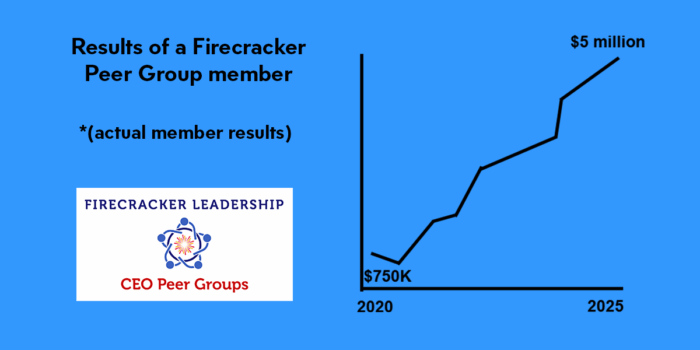My Wednesday Wish for You: To Be Your Own Best Friend We often push ourselves harder than anyone else ever…
ITR Economists give some insight into the US impact on markets, economy, and oil prices as a result of the Invasion of Ukraine.
The Russian invasion of Ukraine has apparently not unfolded as the Russians planned, and the economic mayhem resulting from the invasion is certainly not something that was previously built into our forecasts. The process for us now is to observe the economic sanctions and abnormalities, assess their probable impact, and determine what changes (if any) need to be made to our short- and longer-term forecasts.
Some variables in the process are the length of time the invasion lasts, whether the war spreads beyond Ukraine, and the weaponry Russia uses to prosecute the war. Length, breadth, and weapons not internationally sanctioned would increase the probability that downward revisions to our economic forecasts are warranted. We don’t have full information about these particular variables yet, but we are watching the situation closely for developments.
We expect Europe will bear more of the economic consequences of the war than the US by reason of the former’s greater economic connection to Russia. This is exacerbated by the likelihood that the Russian economy will be hurt by the array of sanctions, the ongoing imbalance between energy supply and demand in Europe (ensuring energy pricing remains a problem at least until hostilities cease), and the potential stalling of recovery due to uncertainties created by all of this. Regarding the energy issue, Germany’s agreement to nix the Nord Stream 2 deal (for now) means high energy prices will remain a problem in Germany and Europe. At the same time, Russia will be deprived of a new stream of hard currency because of the German decision. This occurs at a time when sanctions make other sources of capital problematic for Russia. A longer-term consideration for Europe must be securing reliable energy sources beyond Russia.
Keep in mind that the economies of Europe have not benefited from the same kind of stimulus that the US received via Congress and the Federal Reserve. The difference can be seen in the fact that US GDP is experiencing actual growth and the major economies of continental Europe are running below pre-COVID levels.
The financial markets initially reacted rather calmly to the Russian invasion. At this point, March 2, it is not clear to us that the decline in the stock market is a function of the war. The ITR Equity Optimizer, money supply, ITR Financial Leading Indicator, and other factors had previously indicated that the equity markets were going to be in correction mode. The more telling signal over the last few business days is the decline in yields for US and European government 10-year bonds. At a minimum, it seems the bond market is saying that the central bankers, including our Federal Reserve, are less likely to raise short-term rates, or may raise them to a lesser degree. Here again, the variables of length and breadth will potentially be very important. At worst, seeing the German bond go back into negative territory and the US bond lose over 20 basis points in two days could be the bond market anticipating a pronounced slowdown for Europe and the US.
As was the case in 2014 with the Crimean peninsula invasion, events tend to be accredited with magnified economic importance (short and long term) because they capture the imagination and garner a great deal of press. In the end, consumer behavior will decide if current events are a big deal or not for the economies. A key question for the bulk of the US economy is whether US consumers are going to stop spending money because of the invasion. Perhaps they will hesitate. Perhaps they won’t really care once a new media news cycle begins. History suggests a short attention span in this regard. Either way, don’t focus on consumer confidence or consumer expectations, but rather on how the consumer behaves, most easily discerned through the prism of retail sales.
The US, UK, and EU have imposed an impressive array of financial sanctions that will make it difficult for Russia to raise western capital and roll over its debt. Part of the means to accomplishing this is by limiting Russia’s access to SWIFT. These broader financial sanctions will likely hurt the Russian economy unless the war is wrapped up soon and the sanctions are removed. The SWIFT sanctions are controversial, but the controversy is now irrelevant because they have been implemented. That the banks of Switzerland are shedding their neutrality over this war is very telling and likely to add to the financial pain for Russia and Russians.
Russia is not important to the US economically. However, we are Russia’s third most important export destination (primarily energy). That means Russia needs the US more than the US needs the Russian economy (additionally, we run a significant trade deficit with Russia). China is the main destination for Russia’s exports (by far), followed by Germany and then the US. China can cover the pain being inflicted on Russia if it is a relatively short war. It will be much harder for Germany to do so.
Problems will not be evenly inflicted across markets. For instance, Belarus’s entrance into the war as a vassal for the Kremlin is a major turn of events for the fertilizer industry because potash is a critical component to fertilizer, and Belarus supplies a majority of the world’s potash. Here again the pain will be much more acutely felt outside of the US, as the US diversified its sourcing to outside of Belarus, but global prices are likely to be impacted. With regard to the tech industry, both Ukraine and Russia figure in the supply chain for semiconductors, although not in the manufacturing of the semiconductors themselves.
One of the more obvious and immediate consequences of the war here in the US is the high price of oil. West Texas Intermediate surged to over $110 per barrel March 2. That surge, if sustained, could erode consumer discretionary income and could make the disinflation ITR forecasted milder than we are currently projecting. It is too soon to be altering these forecasts (and many others) based on recent events. Our oil prices will likely drop back to their normal economic level following the conclusion of the war. Lest anyone read too much into that expectation, we see that price level as being $80–85 once normal economic conditions return.
As we have done with other wars over the years, we will continue to monitor, assess, and run our calculations. We will be sure to advise of our conclusions ASAP.



